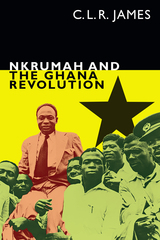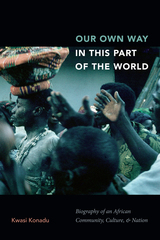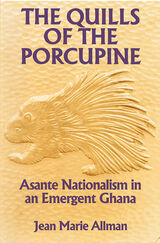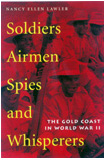


Bearing the historic symbol of the Asante nation, the porcupine, the National Liberation Movement (NLM) stormed onto the Gold Coast’s political stage in 1954, mounting one of the first and most significant campaigns to decentralize political power in decolonizing Africa.
Ghana (formerly the Gold Coast) was the first colony in sub-Saharan Africa to secure political independence from Britain. The struggle for full self-government was led by Kwame Nkrumah, the leading advocate of African nationalism and Pan-African unity in the post-World War II era. The NLM threatened the stability of Nkrumah’s preindependence government and destroyed prospects for a smooth transition to full self-rule. Though NLM demands for Asante autonomy mobilized thousands of members, marchers, and voters, the NLM was unable to forestall plans for a unitary government in a new nation. Under Nkrumah, Ghana became independent in 1957.
Marginalized politically by 1958, the NLM has at times been marginalized by scholars as well. Cast into the shadows of academic inquiry where history’s losers often dwell, the NLM came to be characterized as a tribalist ghost of the past whose foreordained defeat was worthy of some attention, but whose spectacular rise was not.
Today, when it is far harder to dismiss decentralizing movements and alternative nationalisms as things of the past, Jean Marie Allman’s brilliant The Quills of the Porcupine recovers the history of the NLM as a popular movement whose achievements and defeats were rooted in Asante’s history and in the social conflicts of the period. Allman draws skillfully on her extensive interviews with NLM activists, on a variety of published and archival sources in Ghana, and on British colonial records—many of them recently declassified—to provide rich narrative detail.
Sophisticated in its analysis of the NLM’s ideology and of the appeals of the movement to various strata within Asante society, The Quills of the Porcupine is a pioneering case study in the social history of African politics. An exciting story firmly situated within the context of the large theoretical and historical literature on class, ethnicity, and nationalism, its significance reaches far past the borders of Asante, and of Ghana.

The fall of France in June 1940 left the Gold Coast surrounded by potentially hostile French colonies that had rejected de Gaulle's call to continue the fight, signaling instead their support for Marshall Pétain's pro-German Vichy regime.
In Soldiers, Airmen, Spies, and Whisperers, Nancy Lawler describes how the Gold Coast Regiment, denuded of battalions fighting in East Africa, was rapidly expanded at home to meet the threat of invasion. Professor Lawler also shows how the small airport at Takoradi was converted into a major Royal Air Force base and came to play a vital role in the supply of aircraft to the British Eighth Army in North Africa.
The importance of the Gold Coast to the Allied war effort necessitated the creation of elaborate propaganda and espionage networks, the activities of which ranged from rumor-mongering to smuggling and sabotage. The London-based Special Operations Executive moved into West Africa, where it worked closely with de Gaulle's Free French Intelligence. Lawler presents a vivid account of SOE's major triumph—masterminding the migration of a substantial part of the Gyaman people from Vichy Côte d'Ivoire to the Gold Coast.
As she looks at the plethora of military and civil organizations involved in the war, Lawler throws light on decision making in Brazzaville, London, and Washington. This is an account of World War II in one colony, but the story is firmly set within the wider context of a world at war.
READERS
Browse our collection.
PUBLISHERS
See BiblioVault's publisher services.
STUDENT SERVICES
Files for college accessibility offices.
UChicago Accessibility Resources
home | accessibility | search | about | contact us
BiblioVault ® 2001 - 2024
The University of Chicago Press









